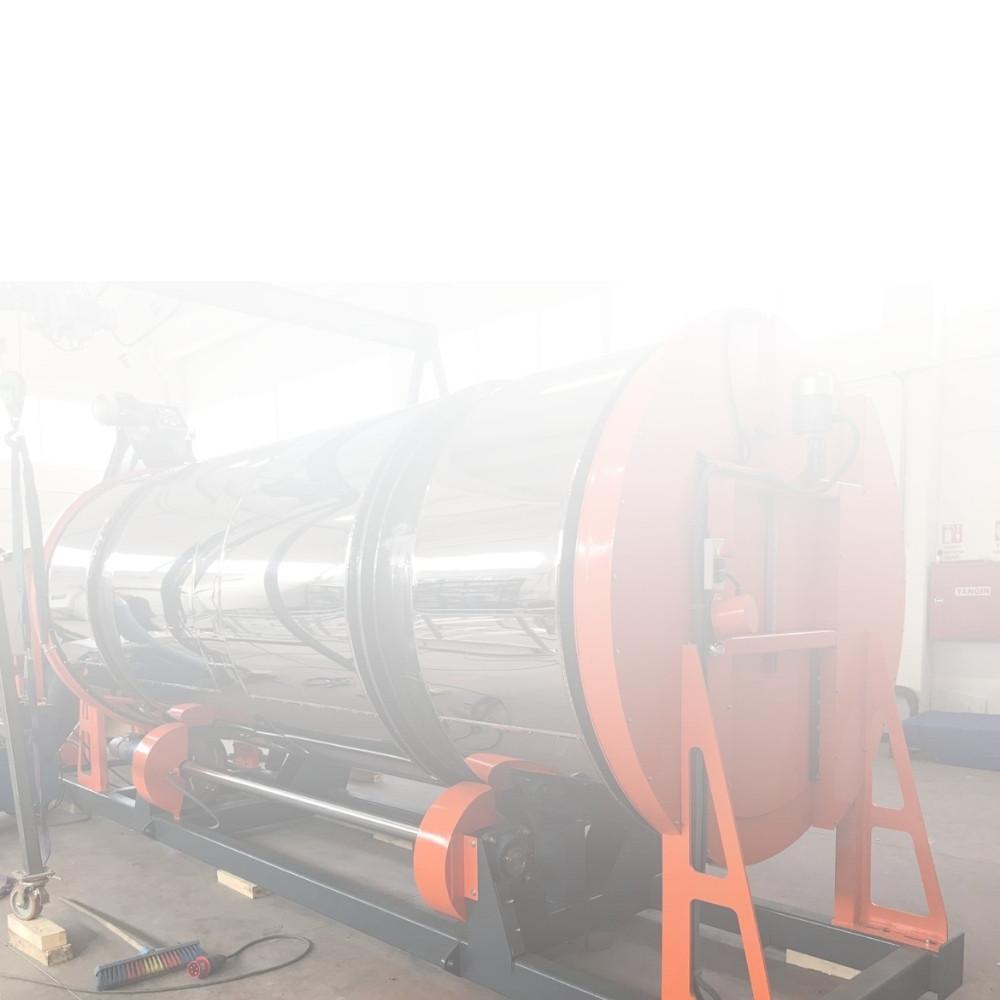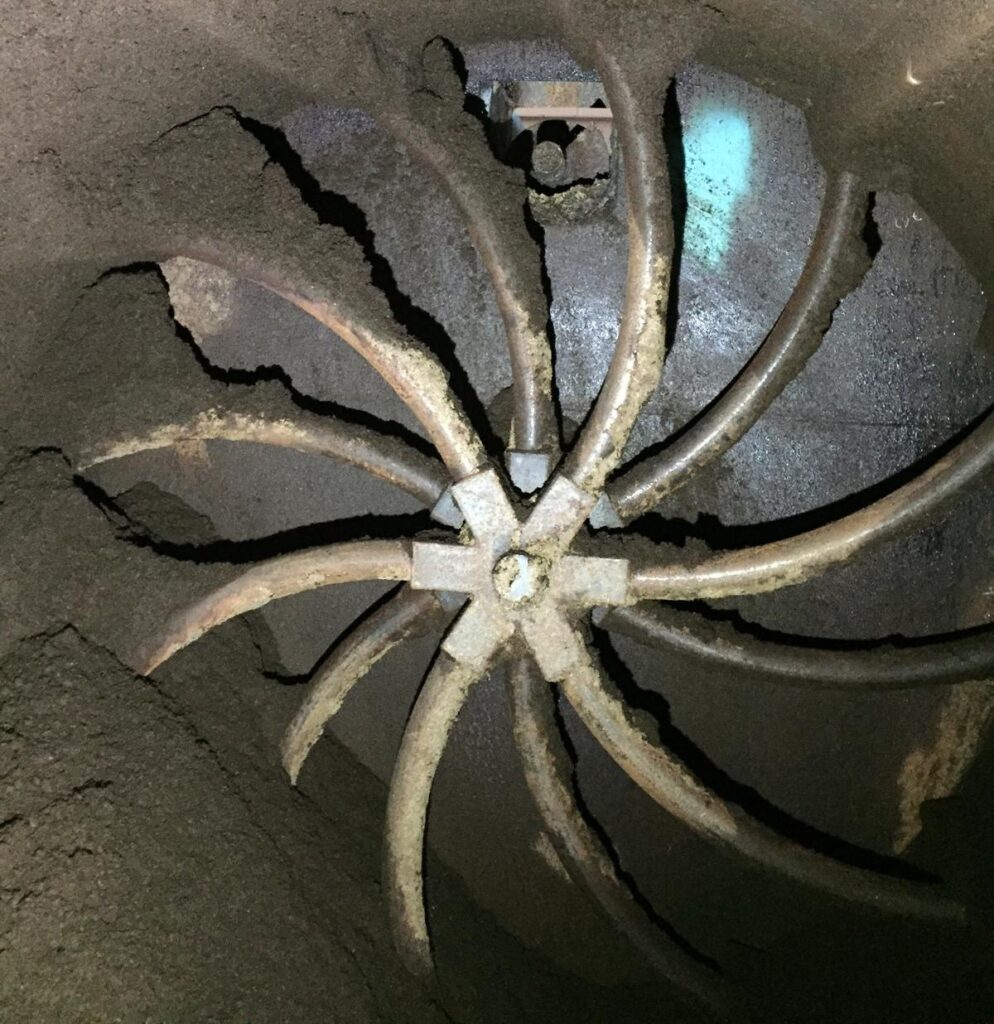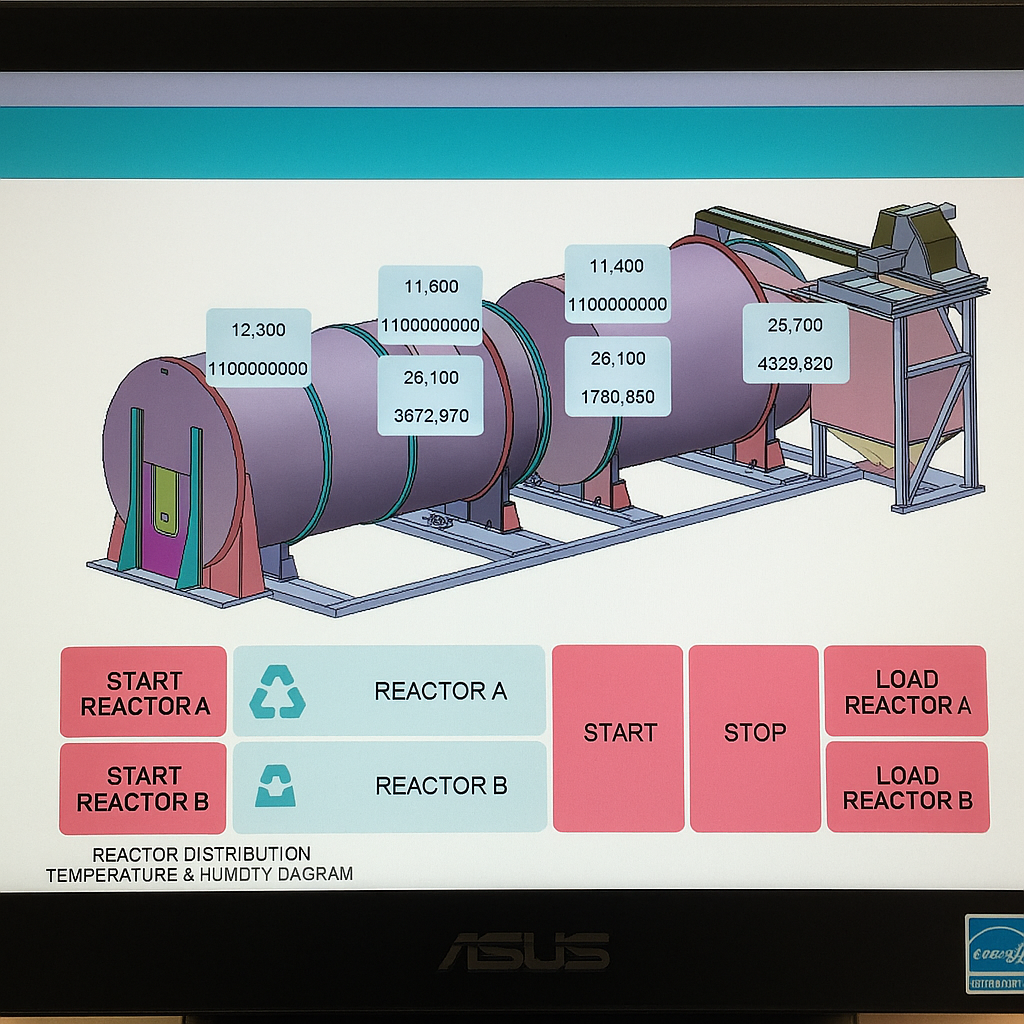From Waste to Valuable Fertilizer: Fast, Controlled, and Efficient Transformation
Bioreactor Compost Systems, a critical part of Mass Bioenerji’s integrated technology portfolio, are an advanced technology solution that completes the “from waste to soil” cycle. These systems are primarily used to process the product called “digestate” from the biogas production process (SSAD) and other green wastes.
Difference from Traditional Methods: Speed and Efficiency
The most significant advantage of these systems is their speed. While traditional pile composting methods take 60 to 90 days, Mass Bioenerji bioreactor systems shorten this process 3-4 times, completing it in as little as 14-21 days. This extraordinary speed creates both time and space efficiency in waste management.
Key Advantages
Digestate Integration and Recovery: The system is designed to directly process the digestate coming from the SSAD (biogas) facility. This integration provides wastewater management advantages and maximizes the recovery of valuable nutrients within the digestate.
High-Quality Organic Fertilizer Production: At the end of the process, certified, high-quality organic fertilizer (premium compost) is obtained, which increases agricultural productivity and reduces the need for chemical fertilizers. A medium-sized facility can produce 3,000 tons of premium compost annually.
Minimal Space Requirement: Thanks to the rapid process time, much less space is needed compared to traditional methods.
Automatic Control Systems: The entire composting process is managed by IoT-based automatic control systems to ensure optimal temperature, moisture, and aeration.
Application Areas
These systems have a versatile waste processing capacity; they are ideal for primarily processing digestate from biogas facilities (SSAD) and green waste from municipalities, such as park and garden waste. At the same time, they can efficiently convert agricultural green waste and food industry residues into high-quality compost.




